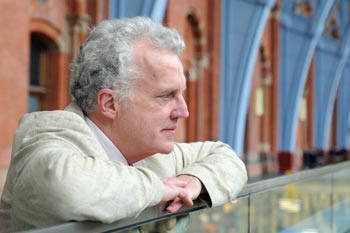The Croydon tram disaster in which seven people were killed has highlighted an issue that has been bubbling under the surface for years in the transport industry. Sleep deprivation, caused by shift working, has long been accepted as a risk factor but there has been a reluctance within the industry to recognise both the long and short effects on staff.
While the final report into the accident is not due until next month at the earliest, there have been unconfirmed reports that the derailment of the tram at speed on a bend may have been caused by driver fatigue.

Christian Wolmar
There were, in fact, quite specific warnings in relation to the risks of drivers falling asleep on the Croydon trams. In March 2014 a report was submitted to the tram operator, FirstGroup, highlighting drivers’ concerns over their shift rosters from CIRAS, the confidential help line for safety concerns within the transport industry.
The report was quite specific. The drivers who had contacted CIRAS said they were: ‘Concerned about the effects of fatigue arising as a result of the fixed roster. The most fatigue inducing shifts are reported to be those where there is a rotation from early to late shifts and the night shift.’
They added that on occasion ‘staff have also been expected to drive trains during the morning service if another driver fails to turn up for their shift’. The drivers’ concerns were baldly stated and read horribly prescient: ‘It is felt that that the shifts described above and the activities involved increase fatigue amongst staff and the likelihood of micro sleeping, which could lead to an operational incident.’
Although we do not know the particular roster of the driver in the accident, the report highlighted general worries about the company’s management of shift patterns. While generally those changing from a very late to a very early duty or vice versa had two days off in between, occasionally they only had one. The company responded by saying that all shift patterns are negotiated with the trade unions and refused to accede to suggestions that the overall pattern should be changed.
There are enormous implications if driver fatigue caused by poor shift management is found to be to blame, not just within the rail industry but also for professional drivers of both buses and trucks, and even possibly pilots, who despite having strictly regulated hours, are currently expressing concerns that have become public as a result of the Ryanair troubles.
Transport and shift working are symbiotic and therefore any finding that requires greater priority being given to the risks of fatigue caused by poor shift rostering will have to be acted upon, with potentially major effects on the costs of running services.
The issue has become particularly relevant because the revelation about the CIRAS report happened to coincide with the award of the Nobel prize to three scientists whose work has focussed on the importance to human health of not disrupting our natural circadian rhythms.
The trio discovered that humans – and indeed animals and even plants - are actually genetically determined to keep time according to the earth’s revolutions. Breaking these patterns can be damaging to health and prevent people from sleeping properly as well as making them dozy during their waking periods. Again, there are widespread and far-reaching implications from this work which could impact widely on the transport industry.
The Rail Safety and Standards Board published advice about staff fatigue as far back as 2012. It stated: ‘Simply specifying a minimum rest period between shifts will not guarantee that a shift worker is fully recovered. The reason is that the extent of a person’s recovery will depend upon many factors. These include, for example, how much sleep a person has been able to obtain; the quality of that sleep; [and] the extent to which the rest period coincides with the normal (circadian) cycle of the biological body clock.’
It is very unclear whether transport providers have taken this to task and adjusted shift patterns as a result, particularly examining each of their employees’ ability to cope with difficult rotas. If not, the findings of the report into the Croydon accident may well force them to do so.
Christian Wolmar is an author and broadcaster specialising in transport. His latest book, Railways and the Raj, how the steam age transformed India, is published on November 2 by Atlantic Books. www.Christianwolmar.co.uk@christianwolmar
Register now for full access
Register just once to get unrestricted, real-time coverage of the issues and challenges facing UK transport and highways engineers.
Full website content includes the latest news, exclusive commentary from leading industry figures and detailed topical analysis of the highways, transportation, environment and place-shaping sectors.
Use the link below to register your details for full, free access.
Already a registered? Login